29 start with C start with C
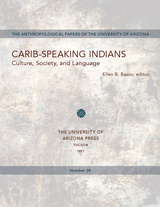

The Roman Catholic Church's first significant legislative enactment on the nature and role of the Catholic university, the apostolic constitution Ex corde Ecclesiae (1990) grew out of thirty years of dialogue between ecclesiastical authorities and academic representatives. The final document affirms the explicit Catholic identity of Catholic educational institutions and outlines provisions for maintaining that identity; the questions of how to implement its provisions have in turn created the need for more dialogue and examination. In this volume, distinguished scholars and legal experts define the key questions and explore the future implications of Ex corde for American Catholic colleges and universities.
The assertion of the Catholic identity of Catholic institutions of higher education prompts the contributors to examine the definition of Catholic education as a special synthesis of the religious and the academic, of faith and reason; and to discuss corollary issues such as secularization; the counter-cultural features of Catholic education; and the great diversity of such schools in the United States and of their sponsoring religious orders. The contributors probe the schools' relationships with the Church hierarchy, exploring in particular the role of the bishops, the degree of autonomy from ecclesiastical control, and questions of academic freedom. They also consider specific legal issues that American Catholic colleges must face, including recognition of student groups, tenure and promotion decisions, governance, student and faculty conduct, and the relationship between canon and civil law, including compliance with national and local civil rights provisions. This volume also includes the complete text in English of Ex corde Ecclesiae and the preliminary draft of ordinances from the Ex corde Ecclesiae Implementation Committee of the National Conference of Catholic Bishops.
Appearing at a time when universities must face major issues of their own identity and governance, this volume will be of interest to all faculty and administrators, diocesan authorities and legal counsel, and everyone concerned with the future of Catholic higher education.

Through first-hand interviews with celebrities and entertainment industry practitioners, the authors discuss the social, cultural, and economic influences of celebrity. Dialogues with celebrities such as Kwok-Leung Kam, Bob Lam, Denise Ho, Hilary Tsui, and Francis Mak provide insider accounts of celebrity formation, management, and marketing in Hong Kong and Mainland China, as well as South Korea and Taiwan.
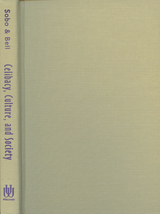
This is the first cross-cultural inquiry into the practice of celibacy around the world and through the ages, among groups as diverse as Kenyan villagers and U.S. prisoners, Mazatec Shamans and Buddhist nuns and monks, Shaker church members and anorexic women.
The examples of celibacy described here illustrate the complex relationship between human sexuality and its particular sociocultural context. Ideas about the body, gender, family, work, religion, health, and other dimensions of life come sharply into focus as the contributors examine the many practices and institutions surrounding sexual abstinence. They show that, though celibacy is certainly sometimes a punishment or a deliberate ritual abstinence, it also serves many other social and material functions and in some cases contributes to kin-group survival and well-being. Celibacy, Culture, and Society represents a significant step towards understanding the functions and meanings of sexuality.
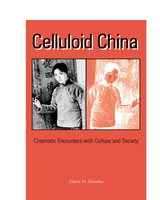
Celluloid China: Cinematic Encounters with Culture and Society by Harry H. Kuoshu is a lucid introduction to the cinema of mainland China from the early 1930s to the early 1990s. Emphasizing both film contexts and film texts, this study invites film scholars and students to a broad cinematic analysis that includes investigations of cultural, cross-cultural, intellectual, social, ethnic, and political issues. Such a holistic evaluation allows for a better understanding of both the genesis of a special kind of film art from the People’s Republic of China and the culture exemplified in those films.
The fifteen films include: Two Stage Sisters; Hibiscus Town; Farewell My Concubine; Street Angel; Three Women; Human, Woman, Demon; Judou; Girl from Hunan; Sacrificed Youth; Horse Thief; Yellow Earth; Old Well; Red Sorghum; Black Cannon Incident; and Good Morning, Beijing. Discussions of each film have an introduction, passages from the director’s own notes whenever available, and a scholarly article. Discussion questions are found in an appendix. Within its complete bibliography, the book also features a suggested reading list for Chinese film classes. Celluloid China is the first book to provide such an exhaustive study of the art and cultural context of Chinese cinema.
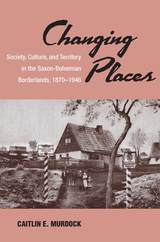
"Changing Places is an interesting meditation on the varying identities and rights claimed by residents of borderlands, the limits placed on the capacities of nation-states to police their borders and enforce national identities, and the persistence of such contact zones in the past and present. It is an extremely well-written and engaging study, and an absolute pleasure to read."
---Dennis Sweeney, University of Alberta
"Changing Places offers a brilliantly transnational approach to its subject, the kind that historians perennially demand of themselves but almost never accomplish in practice."
---Pieter M. Judson, Swarthmore College
Changing Places is a transnational history of the birth, life, and death of a modern borderland and of frontier peoples' changing relationships to nations, states, and territorial belonging. The cross-border region between Germany and Habsburg Austria---and after 1918 between Germany and Czechoslovakia---became an international showcase for modern state building, nationalist agitation, and local pragmatism after World War I, in the 1930s, and again after 1945.
Caitlin Murdock uses wide-ranging archival and published sources from Germany and the Czech Republic to tell a truly transnational story of how state, regional, and local historical actors created, and eventually destroyed, a cross-border region. Changing Places demonstrates the persistence of national fluidity, ambiguity, and ambivalence in Germany long after unification and even under fascism. It shows how the 1938 Nazi annexation of the Czechoslovak "Sudetenland" became imaginable to local actors and political leaders alike. At the same time, it illustrates that the Czech-German nationalist conflict and Hitler's Anschluss are only a small part of the larger, more complex borderland story that continues to shape local identities and international politics today.
Caitlin E. Murdock is Associate Professor of History at California State University, Long Beach.
Jacket Credit: Cover art courtesy of the author

Changing Youth in a Changing Society begins with a complete survey of the problems of youth, showing which disorders peak during the teenage years. With this background of fact firmly established, Michael Rutter turns to the difficult historical questions about whether adolescent disorders are truly becoming more frequent. Here Rutter shows that the news is not uniformly bad. Some psychosocial problems, such as teenage alcoholism and crime, are still on the rise. But other problems, among them the much heralded generation gap, turn out to be largely mythical. Still others, like the decline in educational achievement, may only reflect historical changes in the population of teenagers being assessed.
Rutter’s historical analysis supports a comprehensive discussion of the causes of adolescent disorder. The effects of heredity, childhood, family, school, peer group, religion, the media, and the urban environment are all assessed in review of research which is a model of clarity and good sense. This review provides the factual framework for informed recommendations for more effective prevention and treatment of adolescent disorders.
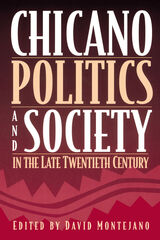
The various protest movements that together constituted the Chicano Movement of the 1960s and 1970s urged a "politics of inclusion" to bring Mexican Americans into the mainstream of United States political and social life. This volume of ten specially commissioned essays assesses the post-movement years, asking "what went wrong? what went right? and where are we now?" Collectively, the essays offer a wide-ranging portrayal of the complex situation of Mexican Americans as the twenty-first century begins.
The essays are grouped into community, institutional, and general studies, with an introduction by editor Montejano. Geographically, they point to the importance of "Hispanic" politics in the Southwest, as well as in Chicago wards and in the U.S. Congress, with ramifications in Mexico and Central America. Thematically, they discuss "non-traditional" politics stemming from gender identity, environmental issues, theatre production, labor organizing, university policymaking, along with the more traditional politics revolving around state and city government, the Congressional Hispanic Caucus, and various advocacy organizations.


As the world is drawn together with increasing force, our long-standing isolation from—and baffling ignorance of—China is ever more perilous. This book offers a powerful analysis of China and the transformations it has undertaken since 1989.
Wang Hui is unique in China’s intellectual world for his ability to synthesize an insider’s knowledge of economics, politics, civilization, and Western critical theory. A participant in the Tiananmen Square movement, he is also the editor of the most important intellectual journal in contemporary China. He has a grasp and vision that go beyond contemporary debates to allow him to connect the events of 1989 with a long view of Chinese history. Wang Hui argues that the features of contemporary China are elements of the new global order as a whole in which considerations of economic growth and development have trumped every other concern, particularly those of democracy and social justice. At its heart this book represents an impassioned plea for economic and social justice and an indictment of the corruption caused by the explosion of “market extremism.”
As Wang Hui observes, terms like “free” and “unregulated” are largely ideological constructs masking the intervention of highly manipulative, coercive governmental actions on behalf of economic policies that favor a particular scheme of capitalist acquisition—something that must be distinguished from truly free markets. He sees new openings toward social, political, and economic democracy in China as the only agencies by which the unstable conditions thus engendered can be remedied.



This contribution to European historical literature--based on extensive research in Madrid--provides a clear and dispassionate account of successive ecclesiastical-secular conflicts and controversies, and deftly summarizes the diverse ideological and intellectual currents of the times.
Nowhere in Europe has the Roman Catholic Church exerted a more mystical hold on the life of a nation than it has in Spain. Yet this hold has not been unchanging or unchallenged. By the mid-eighteenth century the Church was no longer the only legitimate source of authority, the all-pervasive presence that it had been, most forcefully in the late fifteenth and sixteenth centuries. Still, its power remained formidable. The Spanish Church imposed standards of conduct over the entire range of society, from the aristocracy to the peasant masses, and it possessed the material resources necessary to maintain an elaborate ecclesiastical network that influenced every aspect of Spanish life.
The heart of the book deals with the reactions of the Church to the dramatic, sometimes violent, changes that occurred during the critical nineteenth-century period of national transition from royal absolutism to popular liberalism. The study examines the responses of the Church to the new social and political forces that could no longer be excluded or contained, among them an emergent secular--even anticlerical--culture and a developing capitalism.Callahan demonstrates that these changes engendered resentments and frustrations deep within the ecclesiastical order that persisted well into the twentieth century, notably with the Spanish Church's embrace of Franco.
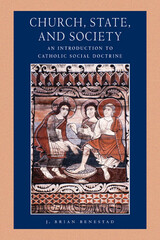
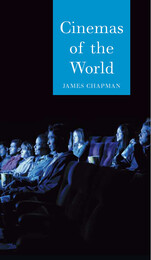
Chapman examines the rise to dominance of Hollywood cinema in the silent and early sound periods. He discusses the characteristic themes of American movies from the Depression to the end of the Cold War especially those found in the western and film noir – genres that are often used as vehicles for exploring issues central to us society and politics. He looks at national cinemas in various European countries in the period between the end of the First World War and the end of the Second, which all exhibit the formal and aesthetic properties of modernism. The emergence of the so-called "new cinemas" of Europe and the wider world since 1960 are also explored.
"Chapman is a tough-thinking, original writer . . . an engaging, excellent piece of work."—David Lancaster, Film and History
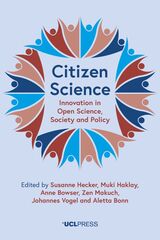
This book identifies and explains the role of citizen science within innovation in science and society, and as a vibrant and productive science-policy interface. The scope of this volume is global, geared towards identifying solutions and lessons to be applied across science, practice and policy. The chapters consider the role of citizen science in the context of the wider agenda of open science and open innovation and discuss progress towards responsible research and innovation, two of the most critical aspects of science today.

Clarence Darrow, son of a village undertaker and coffinmaker, rose to become one of America’s greatest attorneys—and surely its most famous. The Ohio native gained renown for his central role in momentous trials, including his 1924 defense of Leopold and Loeb and his defense of Darwinian principles in the 1925 Scopes “Monkey Trial.” Some have traced Darrow’s lifelong campaign against capital punishment to his boyhood terror at seeing a Civil War soldier buried—and no client of Darrow’s was ever executed, not even black men who were accused of murder for killing members of a white mob.
Closing Arguments: Clarence Darrow on Religion, Law, and Society collects, for the first time, Darrow’s thoughts on his three main preoccupations, revealing a carefully conceived philosophy expressed with delightful pungency and clarity. His thoughts on social issues, especially on the dangers of religious fundamentalism, are uncannily prescient. A dry humor infuses his essays, and his reflections on himself and his philosophy reveal a quiet dignity at the core of a man better known for provoking Americans during an era of unprecedented tumult. From the wry “Is the Human Race Getting Anywhere?” to the scornful “Patriotism” and his elegiac summing up, “At Seventy-two,” Darrow’s writing still stimulates, pleases and challenges.
A rebel who always sided intellectually and emotionally with the minority, Darrow remains a figure to contend with sixty-seven years after his death. “Inside every lawyer is the wreck of a poet,” Darrow once said. Closing Arguments demonstrates that, in his case, that statement is true.
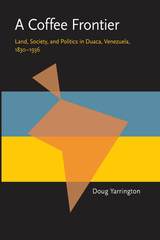
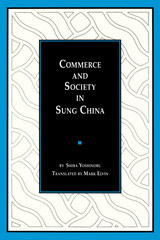
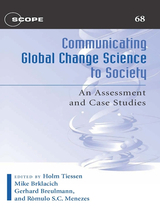
How then can we translate scientific understanding of these trends into public policy?
Communicating Global Change Science to Society examines the growing number of instances in which governments and scientists have engaged in research projects in which the goal is to inform policy decisions. It assesses these experiences and suggests their implications for future collaborations.
The book begins with a discussion of interactions between science and policy, particularly as they relate to the broad significance of environmental change. It then addresses concerns that emerge from this discussion, including how scientific research results are communicated in democratic societies, the uses (and misuses) of scientific findings, and what the natural and social sciences could learn from each other.
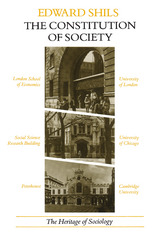
Professor Shils has attempted to develop a theory that has a place for more than those parts of society that are generated from the biological nature of human beings and those parts that are engendered by the desires of individuals, acting for themselves or for groups and categories of individuals, to maintain and increase their power over other human beings and to secure material goods and services for themselves. He has argued that there are constituents of society in which human beings seek and cultivate connections with objects that transcend those needed to satisfy biological necessity and the desire for material objects and power over others. This third stratum of social existence, he concludes, cannot be reduced to the other two and cannot be disregarded in any serious attempt to understand the function of any society. Thus Edward Shils, without disregarding its many valuable achievements, has nevertheless parted ways with much of modern sociology.
For this collection of papers the author has written an introductory intellectual autobiography that places each essay in the setting of the development of his thought and that connects it with his other writings.
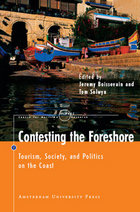
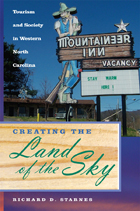
A sophisticated inquiry into tourism's social and economic power across the South.
In the early 19th century, planter families from South Carolina, Georgia, and eastern North Carolina left their low-country estates during the summer to relocate their households to vacation homes in the mountains of western North Carolina. Those unable to afford the expense of a second home relaxed at the hotels that emerged to meet their needs. This early tourist activity set the stage for tourism to become the region's New South industry. After 1865, the development of railroads and the bugeoning consumer culture led to the expansion of tourism across the whole region.
Richard Starnes argues that western North Carolina benefited from the romanticized image of Appalachia in the post-Civil War American consciousness. This image transformed the southern highlands into an exotic travel destination, a place where both climate and culture offered visitors a myriad of diversions. This depiction was futher bolstered by partnerships between state and federal agencies, local boosters, and outside developers to create the atrtactions necessary to lure tourists to the region.
As tourism grew, so did the tension between leaders in the industry and local residents. The commodification of regional culture, low-wage tourism jobs, inflated land prices, and negative personal experiences bred no small degree of animosity among mountain residents toward visitors. Starnes's study provides a better understanding of the significant role that tourism played in shaping communities across the South.
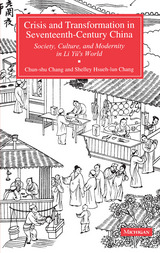
The main thread of the book follows the life and works of a remarkable figure of the period, Li Yü (1611-80), whose vast array of accomplishments and experiences mirror seventeenth-century China in all its complexity and excitement. Li Yü's China was a world of unprecedented changes in almost all spheres of life. A thriving commercial and industrial economy, stupendous population growth, and the emergence of a new age of science and technology were accompanied by intense urbanization, radical views on money, wealth, and luxury, liberal attitudes toward sexuality, and developments that would change the nature of the literary and intellectual world. The Changs' exhaustive exploration of Chinese historical and literary sources of the sixteenth and seventeenth centuries is combined with a selective application of interpretive insights and analytic techniques from the major theoretical schools.
An important resource for scholars in history, literature, and Asian studies, Crisis and Transformation extends its appeal to those interested in the history of science, issues of gender and social transformation, and popular culture movements.
Chun-shu Chang is Professor of History, University of Michigan, and Honorary Professor of Chinese History, China. Shelley Hsueh-lun Chang is Visiting Associate Professor of History and Research Associate, Center for Chinese Studies, University of Michigan.
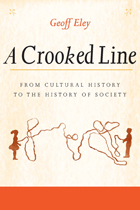
--Lizabeth Cohen, author of A Consumers' Republic
"A Crooked Line brilliantly captures the most significant shifts in the landscape of historical scholarship that have occurred in the last four decades. Part personal history, part insightful analysis of key methodological and theoretical historiographical tendencies since the late 1960s, always thoughtful and provocative, Eley's book shows us why history matters to him and why it should also matter to us."
--Robert Moeller, University of California, Irvine
"Part genealogy, part diagnosis, part memoir, Eley's account of the histories of social and cultural history is a tour de force."
--Antoinette Burton, Professor of History and Catherine C. and Bruce A. Bastian Professor of Global and Transnational Studies, University of Illinois
"Eley's reflections on the changing landscape of academic history in the last forty years will interest and benefit all students of the discipline. Both a native informant and an analyst in this account, Eley combines the two roles superbly to produce one of most engaging and compelling narratives of the recent history of History."
--Dipesh Chakrabarty, author of Provincializing Europe
Using his own intellectual biography as a narrative device, Geoff Eley tracks the evolution of historical understanding in our time from social history through the so-called "cultural turn," and back again to a broad history of society.
A gifted writer, Eley carefully winnows unique experiences from the universal, and uses the interplay of the two to draw the reader toward an organic understanding of how historical thinking (particularly the work of European historians) has evolved under the influence of new ideas. His work situates history within History, and offers students, scholars, and general readers alike a richly detailed, readable guide to the enduring value of historical ideas.
Geoff Eley is Professor of History at the University of Michigan.

The works of the second-century satirist Lucian--of which about seventy survive--have had a marked influence on western literature since the Renaissance. Translated by Erasmus, and called "inimitable" by Gibbon, Lucian is the first to tell the famous story of the Sorcerer's Apprentice. His subjects range from the hypocrisy of philosophers to fantastic voyages in space. He is often thought the true father of science fiction and, at the same time, is one of the most important witnesses to early Christianity. C. P Jones examines Lucian's work, setting this brilliant writer in the social and intellectual context of an age that proved pivotal in Greco-Roman history.
Lucian's art has been widely considered bookish, concerned with people and customs he and his readers knew only from literature. Jones argues that on the contrary his attacks on such targets as mercenary Stoics and the snake-god Glycon were aimed with mischievous precision. The result is a fresh portrait of Lucian and a vivid picture of a society whose outward assurance masked uncertainty and the onset of profound change.
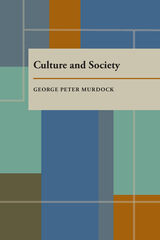
Twenty four essays cover a broad range of topics in cultural anthropology, and represent the best writings of George Peter Murdock and reveal his theoretical orientation and his many landmark contributions to the field.
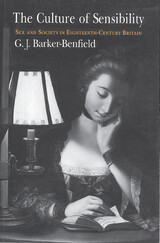

"An outstanding work of educational theory and history."—John Coatsworth, University of Chicago
READERS
Browse our collection.
PUBLISHERS
See BiblioVault's publisher services.
STUDENT SERVICES
Files for college accessibility offices.
UChicago Accessibility Resources
home | accessibility | search | about | contact us
BiblioVault ® 2001 - 2024
The University of Chicago Press









